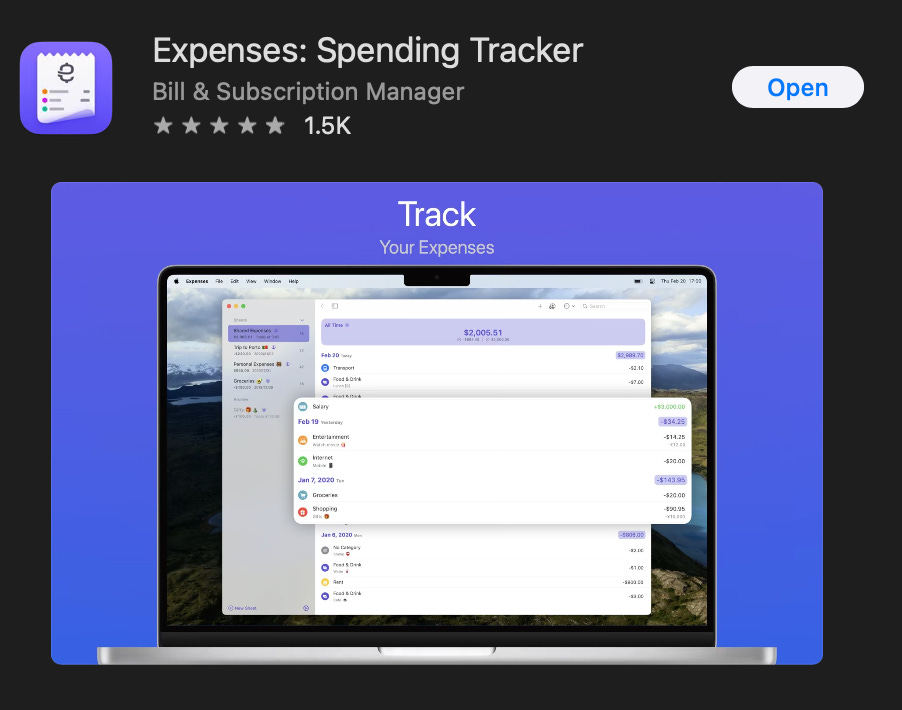How To Achieve Financial Well-Being And Confidence In 4 Simple Steps
Your financial well-being directly affects your emotional, mental, and physical health.
Financial stress drags down your mental health, relationships, and even your physical well-being. Money stress results in higher rates of anxiety, depression, and chronic health issues.
You can start to work toward achieving financial security. Prioritize taking action each day to improve your financial situation by tracking your spending, building an emergency fund, and paying off debt.
I knew nothing about personal finance, despite attending college and graduate school. I only heard bits and pieces of things here and there from people. Still, I didn't know basic things like the importance of following a budget, having an emergency fund, or investing in the stock market. I didn't start to understand and master money until I was 29.
Here's how to achieve financial well-being and confidence in four simple steps!

Financial Stress Is Slowly Draining You
1. Mental Health Takes a Major Hit
A 2022 study by the American Psychological Association called Stress in America: Concerned for the future, beset by inflation found that:
"Inflation was reported as a source of stress for the vast majority of adults (83%), and the majority of all adults also said the economy (69%) and money (66%) are a significant source of stress."
According to Forbes and the University of Wyoming, the consequences of financial stress can negatively affect your health in various ways, such as:
Anxiety
Depression
Feelings of hopelessness
Irritability
Mood swings
Memory problems
Insomnia
Poor-quality sleep
Headhaches
Muscle tension
High-blood pressure
Heart disease
Heart attack
Gastrointestinal problems
Weight gain
Weight loss
Eating disorders
Diabetes
Psoriasis
Cancer
Substance Abuse
The longer you continue worrying about money, the worse off your emotional, mental, and physical health will be.
2. The Taboo Of Personal Finance
People would rather discuss celebrities, weight, politics, or even their sex life than talk about debt, money, and personal finance.
This silence keeps you stuck in shame. You're unable to learn about money strategies. You remain stuck rather than finding ways to grow your income.
I experience this with the people I spend time around. They'd rather discuss what's happening in the news than find solutions to afford to buy a house one day.
Key Point: Financial stress is a proven health risk, and the best way to improve your financial well-being is to change your financial situation.
4 Ways to Achieve Financial Well-Being
1. Track Your Money (The 30-Day Awareness Fix)
Start by tracking where every cent goes for thirty days. You'll be shocked at where you're money is going. After you monitor your spending, work to reduce your unnecessary purchases, subscriptions, memberships, and any other expenses you identify when reviewing your monthly credit card and bank statements.
You can use tools like Mint and YNAB to automate money-tracking. I use an Expenses tracking app on my laptop and Trim by One Main.

2. The $1,000 Emergency Fund
U.S. News and World Report found that 42% of Americans don't have an emergency fund.
Your first financial goal is to save $1,000 in an emergency fund. It's best to have your rainy day fund in a separate savings account and only use it in an emergency.
A high-yielding savings or money market account will make your fund grow each month. The higher interest rate will help your emergency fund grow faster.
3. Talk About Money
Discussing your financial situation with someone you trust can help you in three main ways:
Make better financial decisions more often.
Feel less alone in your financial struggles.
Find solutions to save, invest, and build wealth.
Find someone close to you who is good at managing money. You can also find personal finance chats and groups to learn from other people.
One of my goals with Secure Single is to create a community for people to interact, learn, and talk ot others in the comment section, Notes, and chat.
4. Tackle Debt Strategically
Snowball Method
The snowball method works as follows. You pay off your smallest debts first. You snowball the amount that you paid from your previous debt to pay off your larger debt. You continue to snowball until you've successfully paid off your debts.
Avalanche Method
You pay off your highest-interest debt first when you decide to use the avalanche method. You'll save the most money long-term by following the avalanche method.
Key Point: Taking small, measurable daily actions reduces your financial stress.
The Ripple Effects Of Financial Stability
1. Mental Health Improvements
Gaining control over your financial situation will help reduce anxiety and depression symptoms. You'll feel better about yourself. You'll be more confident.
Mastering money management is the start of having better mental health and overall well-being.
2. Your Career Benefits Too
You'll have more confidence in applying for jobs that you think you're not qualified for. You'll ask people you know if their employer is hiring.
You can take a risk of starting a business on your own. You can start it on the side. As you build and scale it and it starts to earn revenue and make you a profit, you can quit your job to focus solely on your business.
3. You Become Part Of The Solution
Once you become financially independent, understand money management, and how to build wealth, you can help others. You can talk to your friends and family. You can start a YouTube channel. You can begin a Substack newsletter.
Key Point: Financial well-being improves every area of your life: community, health, and work.
Read Next
Summary
You can resolve your financial stress. Start today to take positive steps to learn about money. Begin to follow a budget and track your money. Aim to build $1,000 in an emergency fund. Pay off your debt.
You'll feel better as you earn more money and increase your net worth.
Disclaimer: This content is for educational, entertainment, and informational purposes only. This is not business, financial, investment, or any advice. I write online about topics that interest me. I make mistakes just like everyone else. Always conduct your own research and consult a professional before making decisions regarding health, life, finances, investments, taxes, or legal matters.





